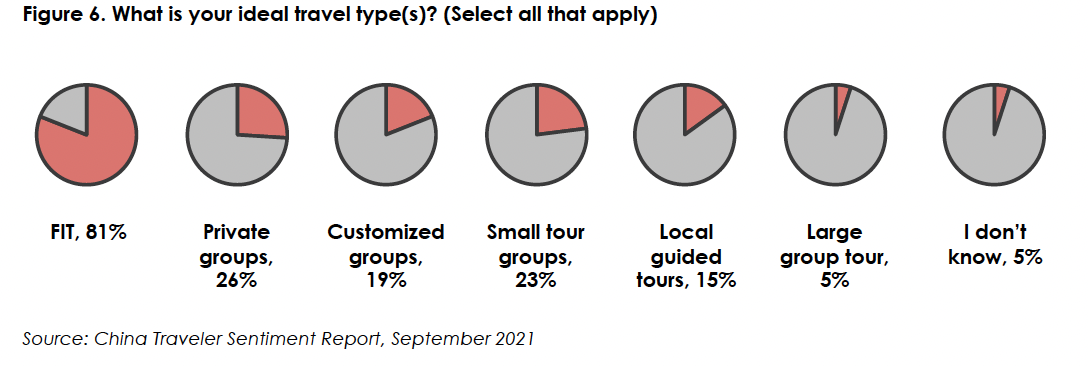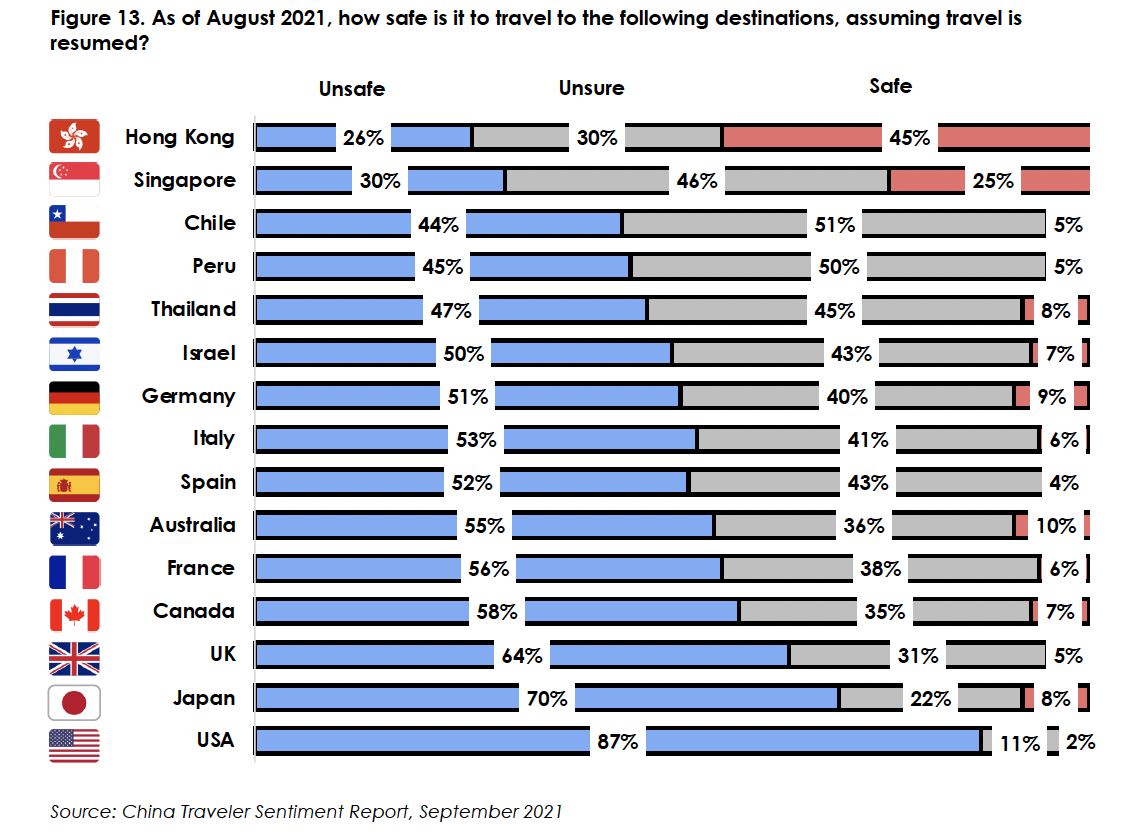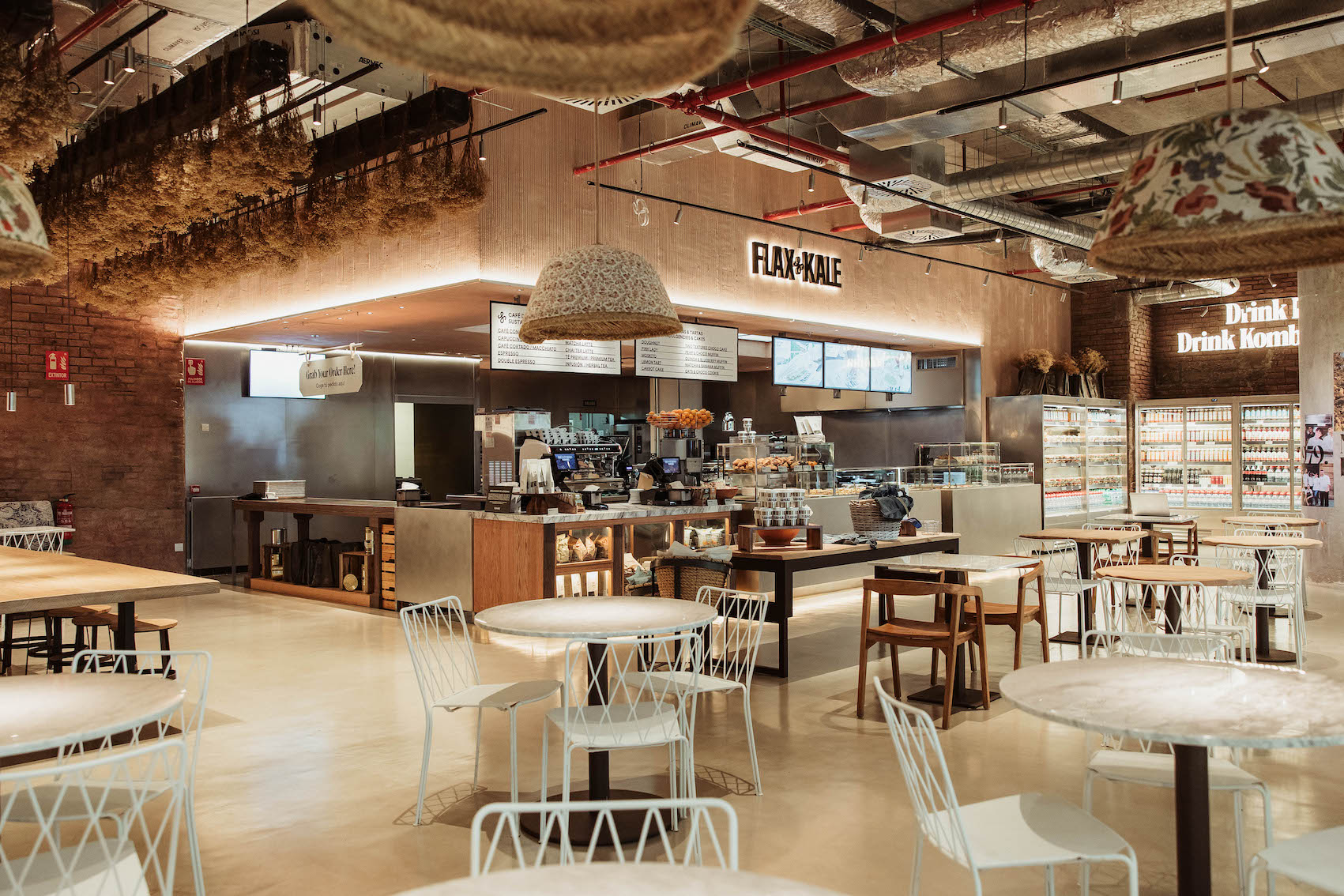CHINA. Dragon Trail International’s fourth China Traveler Sentiment Report has revealed that more Chinese people are now willing to consider travel, as long as safety measures are being met. The data comes from a survey of more than 1,000 Chinese travellers.
Despite this summer’s COVID-19 outbreak in China, the report notes that survey respondents expressed a stronger desire to travel and relax than in previous surveys, and growing frustration around restrictions and outbreaks.

Some 43% of respondents said they would “travel cautiously”, up from 31% in Dragon Trail’s March 2021 Chinese traveller survey, which asked similar questions. The proportion who said they wouldn’t travel dropped from 39% in March to 32% in the September report, while those who said they were “eager to travel” stayed the same at 20% of respondents

The report also notes that concerns about the safety of overseas destinations have declined over the last six months. However, Chinese travellers remain highly receptive to and inspired by accurate information about international destinations.
Attitudes about inbound travel are also fairly welcoming, the report points out, although opinions about quarantine policies are mixed.
Domestic Travel
The report reveals that more Chinese people are now resuming pre-pandemic travel behaviours by travelling to top destinations and visiting traditionally crowded attractions, despite the persistent concern for safety.
71% of those surveyed said they planned to travel during the upcoming National Day holiday in October. While the largest proportion said they planned to travel locally, a growing number are now willing to go further within China.

The top tourism destinations identified by the survey were Zhejiang, Guangdong, Fujian, Yunnan, Beijing, Hunan, Shandong, Sichuan, Shanghai, and Jiangsu.
Hainan, home to China’s booming offshore duty free sector, figured prominently among the top cross-provincial destinations (see graphic above).

Nature (74%) and island and beach trips (56%) were the most sought-after themes for domestic travel. While outbound tourism is still not possible, Dragon Trail’s survey also revealed a desire for international beach and island travel. At 65%, it was the second-most popular activity in terms of respondent’s next outbound trip.

For domestic trips, travellers are also interested in typically crowded attractions such as theme parks (51%) and landmarks and museums (44%).
Outbound Travel
Global vaccination rates have increased significantly since Dragon Trail’s previous traveller sentiment survey, but with rising cases and relaxation of controls around the world, the latest survey data shows that negative perceptions of safety or uncertainly have increased for all destinations.
Singapore is still seen as the safest international destination out of the 13 featured in both surveys, but uncertainty and ratings of “unsafe” have both increased. Japan, rated one of the safest destinations in the March survey, has now dropped to a rating closer to the UK or the US, the report notes.

The destinations with the most stable safety perceptions are Thailand (47% “unsafe”) and Canada (54% “unsafe”). The US remains the country with the lowest safety perception, rated by 87% as “unsafe”.
Infection numbers and infection rates are much more likely to be correlated to perceptions of a destination being unsafe, compared to vaccination rates, the report also reveals.
While official travel advice is the most influential factor that would motivate Chinese travellers to venture outside the country again (76%), having zero or low infection numbers in the destination (60%), no quarantine on arrival in the destination (56%), and being fully vaccinated in China (52%) are also important.

On the plus side for overseas destinations – despite very cautious assessments of safety outside of Mainland China – 81% of respondents felt positively when they saw content on outbound travel. Keywords and sentiments that came up often included feeling fascinated and excited, and a craving for novelty, variety, and relaxation.

Many survey respondents mentioned comfort in seeing this kind of content, as it distracts them from daily anxieties, while others said they were inspired to take notes to plan post-pandemic travel.
Inbound Travel

Despite major concerns about travel safety, and negative perceptions of safety in other countries, the Dragon Trail survey findings reveal a willingness to reopen China to inbound travel. 53% said that the Beijing 2022 Winter Olympics should be open to all visitors with a negative PCR test and vaccination record.

Meanwhile, 25% said that the Games should be held without any spectators and the remaining respondents said that only domestic spectators should be allowed. In reality, Dragon Trail observes, COVID control measures around the Winter Olympics are expected to be much stricter than in Tokyo, but the survey results show that public opinion is more welcoming to international visitors.
Opinions are divided on the strictness of travel policies, with 30% agreeing that quarantine-on-arrival should be relaxed, and another 36% preferring even stricter quarantine for all inbound arrivals. 28% would maintain current quarantine requirements.
Only 5% said that quarantine restrictions should be totally relaxed for Chinese citizens only, compared to 1% who said they should be relaxed for all arrivals regardless of nationality.













